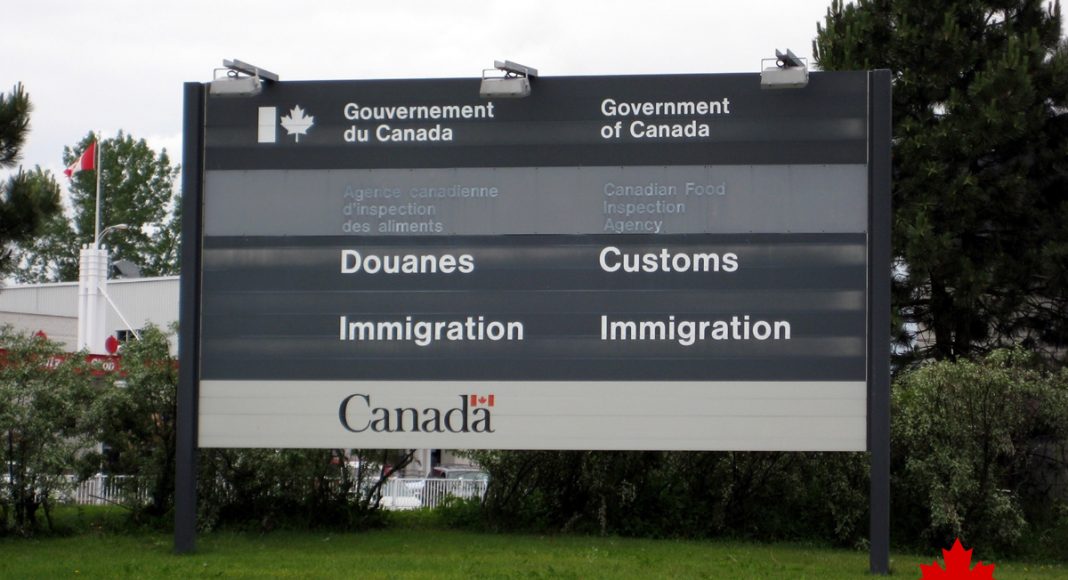Earlier this year, U.S. Customs and Border Protection (CBP) announced that it would not allow individuals entry into the United States if they work in Canada’s legal cannabis industry. The statement affected everyone working in the industry—from budtender to business owner.
Last week, however, CBP announced a reversal (of sorts) of its original guidance document. In the new revision, CBP clarified, “A Canadian citizen working in or facilitating the proliferation of the legal marijuana industry in Canada, coming to the U.S. for reasons unrelated to the marijuana industry will generally be admissible to the U.S. however, if a traveler is found to be coming to the U.S. for reason related to the marijuana industry, they may be deemed inadmissible” (sic).
While this may be a sigh of relief for the industry, there remain a few concerns as Canada marks this historic day.
First, the CBP announcement reiterates that the “sale, possession, production, and distribution, of marijuana or the facilitation of the aforementioned” is a crime under U.S. law and that “crossing the border or arriving at a U.S. port of entry in violation of this law may result in denied admission…” This explanation contradicts the language above and should raise concern about how much discretion is granted to individual CBP agents or CBP locations by the language “will generally be admissible to the U.S.” “Generally” used without detail or explanation still gives CBP latitude to be disruptive.
Second, the ability of Canadian cannabis companies and their employees to conduct business in the United States can be hindered. Although product does not move across international borders, capital will. And individuals and entities will (and do) have ownership interest in firms on both sides of the border. The extent to which CBP will define “for reason[s] related to the marijuana industry” can have significant effects.
Will that definition be narrowly restricted to efforts to conduct a type of international commerce that is obviously illegal? Will it be more broadly interpreted as an individual with unrelated ownership stakes in both Canadian and U.S. cannabis companies entering the U.S. to deal with his or her American company? Will it be even more broadly defined to include items like testimony before state legislatures, policy or business conferences, speaking engagements, political fundraisers or other activity marginally if at all related to the industry?
Third, CBP notes the clear-cut illegality of the Canadian cannabis industry under U.S. law and notes the power and right of CBP to deny entry to anyone in the cannabis industry. The “protections” offered in the clarification are a form of enforcement discretion; that is, a choice by an agency not to enforce a certain law under certain circumstances rather than a signal of the legality of a certain set of behaviors.
Such enforcement discretion can be temporary, can be reversed by another president, cabinet secretary (in this case the Secretary of Homeland Security) or agency head (in this case the Commissioner of CBP) or by any one of those individuals changing his or her mind. Such a policy may be a temporary rather than a permanent fix to a problem borne from two countries having dramatically different cannabis laws.
All that being said, CBP’s clarification guidance is a step in the right direction. The exercise of such enforcement discretion in this case should help protect thousands of Canadians who do and will work in the cannabis industry from massive disruptions at the U.S. border. One can hope that such discretion would also be extended to deal with challenges that may arise in capital markets or in international financial institutions (the latter having been a serious problem for the world’s first legalizing country, Uruguay).
What’s more, it would be confusing for CBP to begin enforcing against cannabis business employees, after failing to do so in a systematic way against Canadian medical cannabis companies or the more than two dozen other nations with legal medical cannabis markets, including Israel and Germany (as medical cannabis is just as illegal under U.S. law as adult-use cannabis).
Finally, CBP should consider expanding such protections even to those individuals working in the Canadian industry who seek to conduct business in the regulated industry in the U.S. After all, it was President Trump who said during a visit to Saudi Arabia, “We are not here to tell other people how to live, what to do, who to be or how to worship.” And if that statement applies to a country with the policies and actions of Saudi Arabia, regulated Canadian cannabis companies should not be much of a concern.


